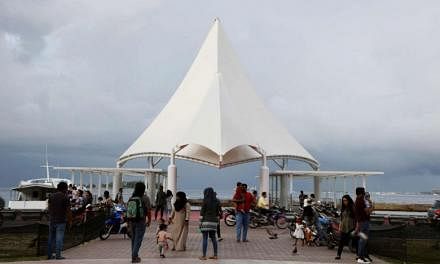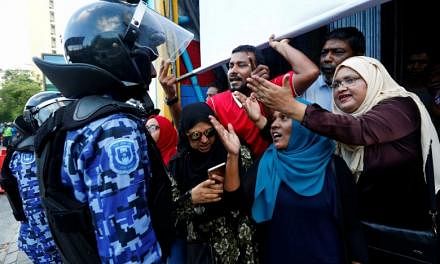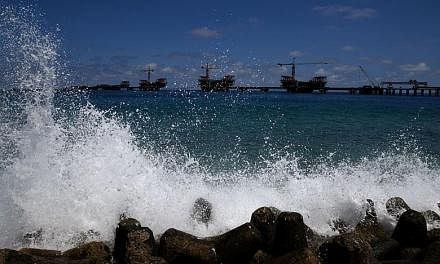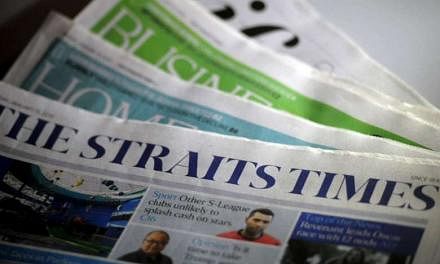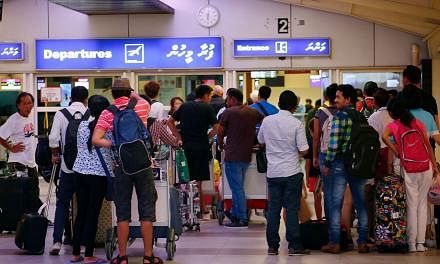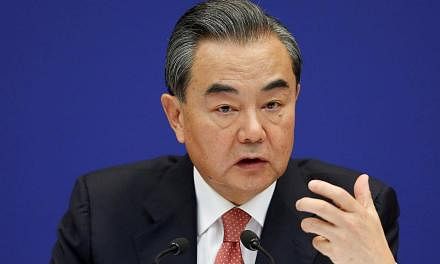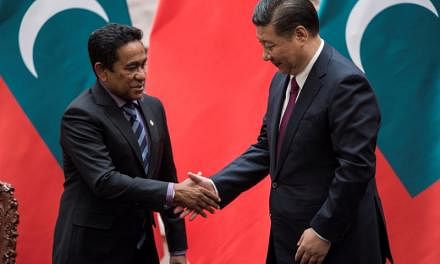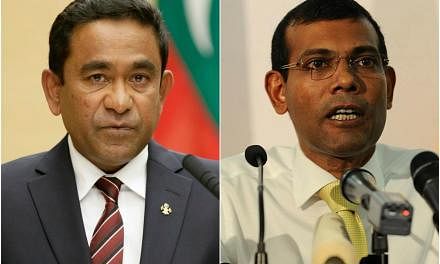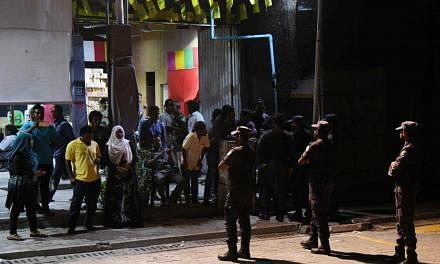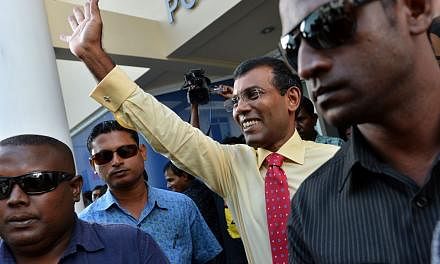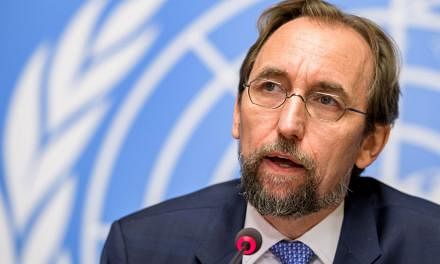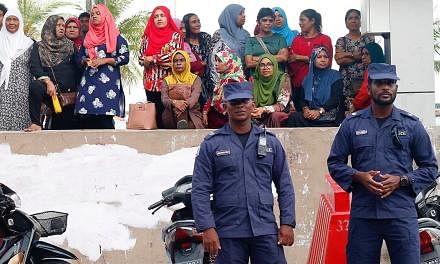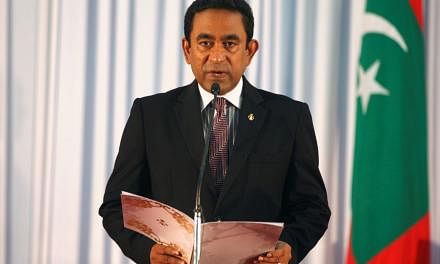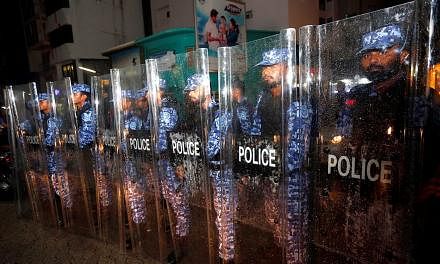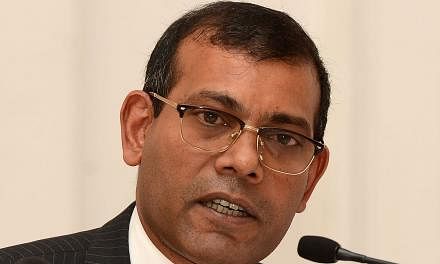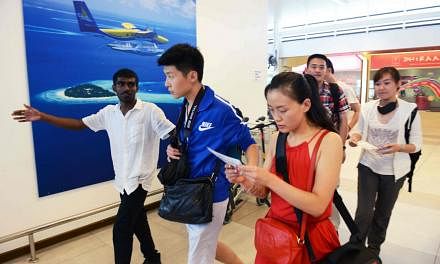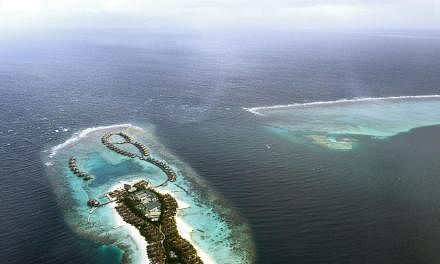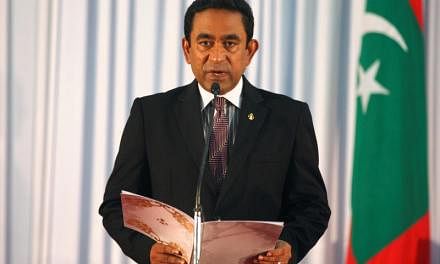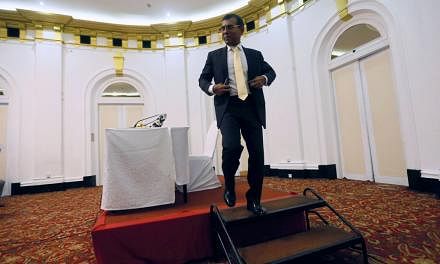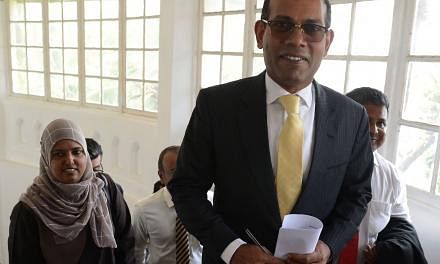Covering the South Asian summit held on Addu atoll of the Maldives in November 2011, I walked into the breakfast room of my hotel on Gan, an island that used to be a secret airbase for the British Royal Air Force during World War II, and spotted a Chinese-looking man alone in a corner. Ignoring the beckoning calls of my Indian and Pakistani friends, I walked over to this person and asked to share his table.
It turned out that he was a junior Chinese diplomat from the embassy in Colombo, Sri Lanka, and as we chatted, he let slip with a grin that in Male, capital of the Maldives, China was opening a brand new embassy that very day with the Maldivian foreign minister as chief guest.
Credit the Chinese for chutzpah. As India, South Asia's dominant power, sat down with its fellow South Asian Association for Regional Cooperation nations for their annual meeting, here was Beijing opening a large mission in its backyard, the timing clearly meant as a cheeky challenge to the regional hegemon.
A little more than six years later, and with two presidential changes behind it in the meantime, the picturesque Indian Ocean nation is in the midst of one of its worst spells of turmoil as embattled President Abdullah Yameen struggles to stay in power after what seems to be a revolt by the once-pliant judiciary and senior police brass.
Two police chiefs were fired on successive days last week, a state of emergency has been declared and Singapore, China and other nations are warning their citizens to avoid the islands.
A nation of a thousand coral islands inhabited by fewer than 450,000 people, the Maldives' political crisis has its roots in the intense Big Power play around the South Asian region. China, India, the United States and Saudi Arabia are all involved. To an extent, Sri Lanka as well because, as a close neighbour, it is often the offshore site for exiled Maldivian politicians to contact their people.
THIN-SKINNED ELITES
With the US and India increasingly coordinating policy across Asia, and Saudi Arabia's heightened proximity with the Trump administration contributing to the rising influence of reformist Crown Prince Mohammad bin Salman, alliances are being redone as the tight elite in the Maldives do their sums, recalibrate and periodically circulate in power.
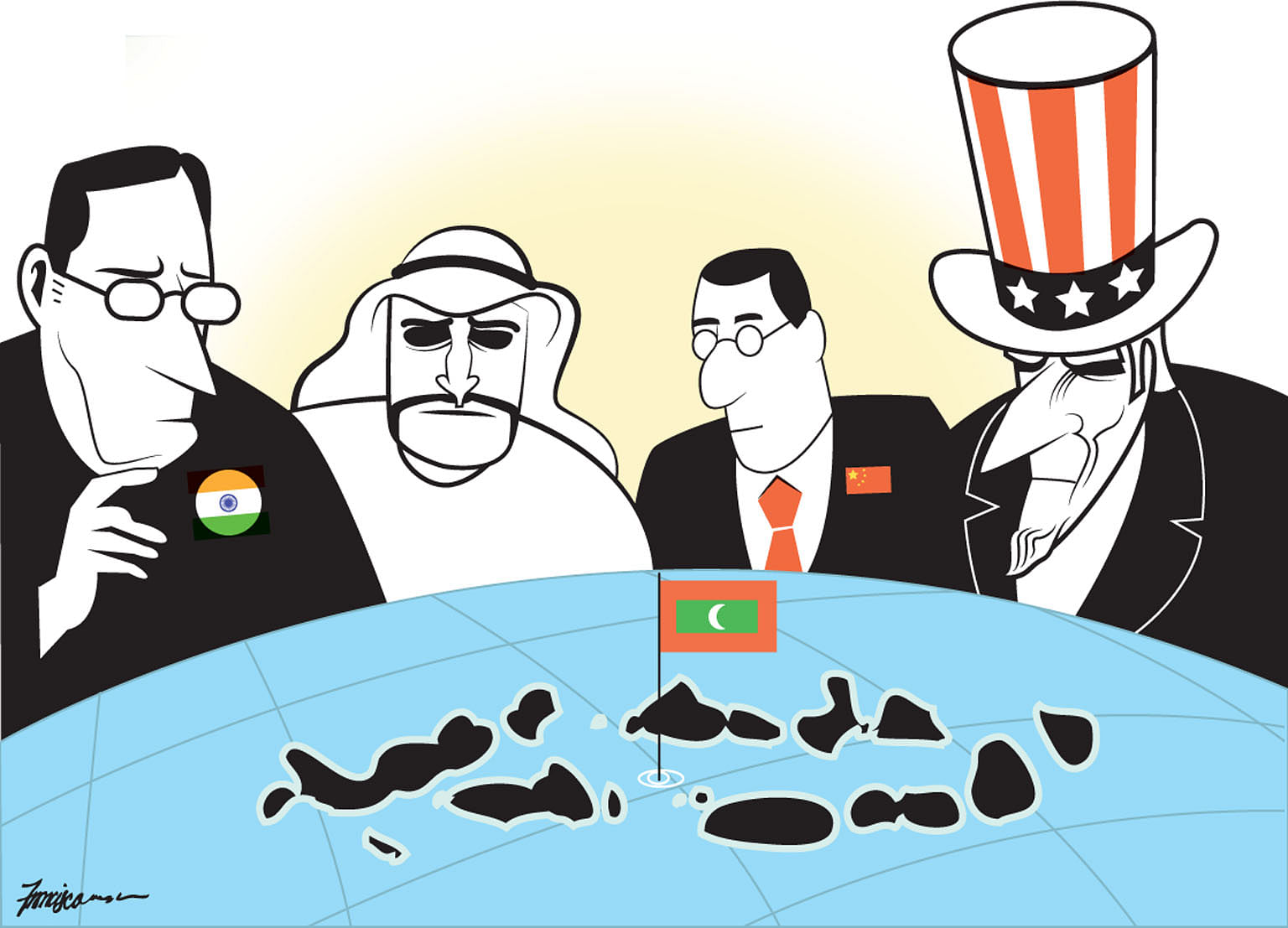
In shades of the politics now being witnessed in Malaysia, one of President Yameen's fiercest critics these days is his half-brother and former mentor, Mr Maumoon Abdul Gayoom, who ruled the islands from 1978 up until the first free elections in 2008. That year saw the rise to power of Mr Mohammed Nasheed, a British-educated human rights activist who spent years in Mr Gayoom's prisons and co-founded the Maldivian Democratic Party (MDP).
If the young island democracy has a problem, it is that its elite class is thin-skinned, untrained in sharing power and prone to high-handedness.
Mr Nasheed, despite his democratic credentials, went after a criminal court judge with whose actions he disagreed. The judge's arrest provoked massive opposition that saw him yielding power in 2012 and, three years later, a successor government successfully tried Mr Nasheed for treason.
Sentenced to 13 years, he spent three years in jail before he was allowed to travel abroad for medical treatment. Since then he has secured political asylum in Britain and has mostly lived there since.
His former deputy and successor, Mr Mohammed Waheed Hassan of the National Unity Party, fared little better but managed to antagonise India during his 21 months in office, after he cancelled a contract to modernise Male international airport given to India's GMR Group and instead handed it to a Chinese company. An international arbitration court in Singapore later awarded US$270 million (S$359 million) in compensation to the Indian firm.
Then came President Yameen. With none of Mr Nasheed's personal warmth and even less tolerant of criticism, Mr Yameen had set himself up for trouble right from the start with his high-handed ways. While he does have a vision of restructuring the Maldives' tourism-dependent economy, Mr Yameen, in trying to reduce Indian influence, fumbled his foreign policy balancing efforts.
FEAR OF CHINESE 'PEARLS'
Last year, Saudi King Salman dropped the Maldives, a nation where 98 per cent of the people are Sunni Muslims, from an East Asian swing after Mr Yameen failed to deliver on a deal to hand an entire island to Saudi interests.
India, always prickly about its periphery and fearful it will be strategically choked in the Indian Ocean by a series of Chinese-built ports from Myanmar to the Maldives, dubbed the "string of pearls", has watched with alarm as Beijing-linked companies snapped up infrastructure projects in the country. A recent free trade agreement with China, according to Mr Nasheed's MDP, was controversially rammed through Parliament in less than an hour, even though the document runs into hundreds of pages.
India has a history of interfering in the internal affairs of its neighbours when it feels its critical interests are threatened. An economic blockade it imposed on Nepal in 1985 after Kathmandu awarded to China a key road-building project running along Nepal's open border with India triggered a chain of events that ultimately saw the kingdom's monarchy toppled.
Around the same time, the Sri Lankan government's decision to allow Voice of America to set up a powerful transmitter in Jaffna, and to sell strategically important oil tank farms in Trincomalee to a company said to be linked to the US Central Intelligence Agency, contributed to the late Indira Gandhi's decision to train and arm Tamil separatists. India, at the time, viewed the US with suspicion, quite unlike the tight relationship the two enjoy today. Three years ago, Indian intelligence agencies orchestrated a stunning Cabinet revolt against then President Mahinda Rajapaksa that saw off the war leader who had become a national hero for decisively quelling the long-running Tamil insurgency.
Aware of all this, Mr Yameen sent his foreign minister recently to see Indian Prime Minister Narendra Modi but the fence-building effort may have come too late. This week, after Mr Yameen's Attorney-General disregarded the Supreme Court's midnight order to reinstate 12 opposition MPs to Parliament, triggering the current crisis, an unusually strong Indian statement said it was "imperative" that court orders be followed.
Equally interestingly, some of the most strident recent criticism of Mr Yameen has come from US Ambassador to the Maldives Atul Keshap, the US State Department and US National Security Council.
The Colombo-based Mr Keshap, who is concurrently accredited to Male, has acknowledged on Twitter that he is in touch with Chief Justice Abdulla Saeed to reiterate US support for his stand. Chief Justice Saeed and another Supreme Court judge were arrested on Tuesday and the remaining judges overturned the decision of their brother-judges subsequently.
"America stands with the people of the Maldives. The Maldivian government and military must respect the rule of law, freedom of expression, and democratic institutions. The world is watching," the White House National Security Council said this week.
U.S.-INDIA TAG TEAM
This fits an emerging pattern of one-two punching by Washington and New Delhi. That the two also have converging views on Pakistan was seen on New Year's Day when Mr Trump's first tweet of 2018 lashed out at Islamabad, accusing it of "lies and deceit" in the war on Muslim terrorists. The US and India say Pakistan harbours militants in Afghanistan and Kashmir to check Indian influence in the region.
In 1989, when then President Gayoom faced a coup and reached out to the US for help, then President George H.W. Bush turned to then Prime Minister Rajiv Gandhi, who swiftly dispatched a para commando brigade and the Indian Navy to steady the situation in Male. Now again there are calls for Indian intervention, a move that would sit uncomfortably with Beijing if it feels its interests might be threatened. Times have changed.
This week, after ex-president Nasheed and respected Indian foreign affairs specialist C. Raja Mohan called on New Delhi to intervene directly in the Maldives, Chinese Foreign Ministry spokesman Geng Shuang responded pointedly that "the international community should play a constructive role on the basis of respecting the Maldives' sovereignty instead of taking measures that could complicate the current situation".
It is not as though the Maldivians, who have been battered by the waves and the winds for centuries, were short of problems. Rising sea levels that threaten the islands' very existence are their top long-term challenge. More immediate is rampant drug abuse and a surprise trend towards radicalisation that has seen some 200 Maldivians head to the Middle East to fight on behalf of the Islamic State in Iraq and Syria. For now, though, it is squarely in the eye of a geopolitical storm.

